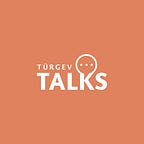Images of the Unconscious by Zulfiqar Awan — Lesson II
We dealt with the “repression” topic this week. It is a big psychological defense mechanism. Understanding this defense mechanism is very important to understand how the psyche works. We examined 2 main movies for that topic. When you repress a thought, a feeling or a trauma, it will show itself in language, in a physical symptom or in a behavior pattern. We see today that a lot of problems are because of repression. We looked at two main views at repression: Jung’s and Freud’s view. They are important to understand the later psychological improvement.
What are defense mechanisms and how did Dr.Freud believe they function?
In psychoanalytic theory, defense mechanisms are the ego’s protective methods of reducing anxiety by unconsciously distorting reality. We looked at them last week. In order to protect ourselves, we distort reality outwardly. It is the psychology of self-deception. People overcome severe traumas like that. For example; people had PTSD after the war as a repression expression. Freud investigated how soldiers overcome feelings when they are stressed. For Freud, all defense mechanisms function indirectly and unconsciously. Just as the body unconsciously defends itself against disease, so also does the ego unconsciously defend itself against anxiety.
When you have some type of trauma, you should look at how you handle it. Most people run away from it. It is the act of repression. But you have to feel that feeling to walk through it. According to Freud, if you do not confront it repetition compulsion comes out. It is a psychological phenomenon in which a person repeats an event or its circumstances over and over again. This includes reenacting the event or putting oneself in situations where the event is likely to happen again. This “re-living” can also take the form of dreams in which memories and feelings of what happened are repeated, and even hallucinated. Modern age is characterized by anxiety as a result of capitalist culture that we live in on a daily basis. Symptoms should be interpreted because they try to communicate with you. But unfortunately modern age psychiatrists deal with only physical symptoms giving some pills. You should question yourself about your repression and the behavior patterns you repeat.
Dr. Jung and Repression
As you can see in the “Dangerous Method” movie, Jung’s repression originates from his feelings against his patient, he wanted to repress his feelings against her. Other psychiatrist Otto Rank defends that human beings should not repress anything. He is confused after Otto’s words and Jung has an affair with Sabina Spielrein who is a psychiatrist and contributed a lot to psychology. According to Jung, “Repression is a process that begins in early childhood under the moral influence of the environment and continues through life.” There is collective repression that some countries have. For example, both Japan and Germany are very strict, highly repressed, ordered and rational societies. But Japan has a very high percentage of suicide and using sex dolls. Germany has the biggest BDSM community in the world.
Repression is not only a factor in the etiology of many neuroses (a relatively mild mental illness that is not caused by organic disease, involving symptoms of stress (depression, anxiety, obsessive behavior, hypochondria) but not a radical loss of touch with reality). it also determines contents of the personal shadow, since the ego generally represses material that would disturb its peace of mind.
Shadow: is a negative, and often automatic, unintentional and unconscious, response to events, people and situations. Different people exhibit different Shadow Behaviors. You may act defensively, resist change, manipulate others or act aggressively. According to Jung, you should individuate your shadow. You should bring it to the conscious.
Some ways for understanding your shadow;
● Observe the artists that you like,
● Write your life story and be honest with yourself. That’s therapy itself.
● Write down ten problems that you are currently facing in your life.
Greek Tragedy and stream of consciousness are really therapeutic genres. James Joyce and Virginia Woolf are famous writers of stream of consciousness. In Greek tragedy, Sophocles, Aeschleus, and Euripides should be read. They teach so much about yourself, psyche and the conscious.
We looked at the play “Oresteia” by Aeschylus this week. There is a father ( Tantalus) who kills his son (Pelops) to test the gods and prepares food and wine from his flesh and blood and wants gods to solve that. The Gods understand the trick and throw Tantalus in Hades and bring Pelops to life again. But the fate of the family does not change and next generations repeat the action of killing children and make the food with their flesh. This myth is actually the beginning of civilization. Tantalus’s primal crime is repressed and it goes one generation to the next through genetics. So we inherit memories and feelings, not only physical features.
It is called “transgenerational phenomena” in psychology, “epigenetics” in science and “family curse” in greek tragedy. So it is important to read greek tragedy. Ancient Greeks say blood determines your fate but not destiny. Fate can be changed.
Rabia Aysu Taşkın
